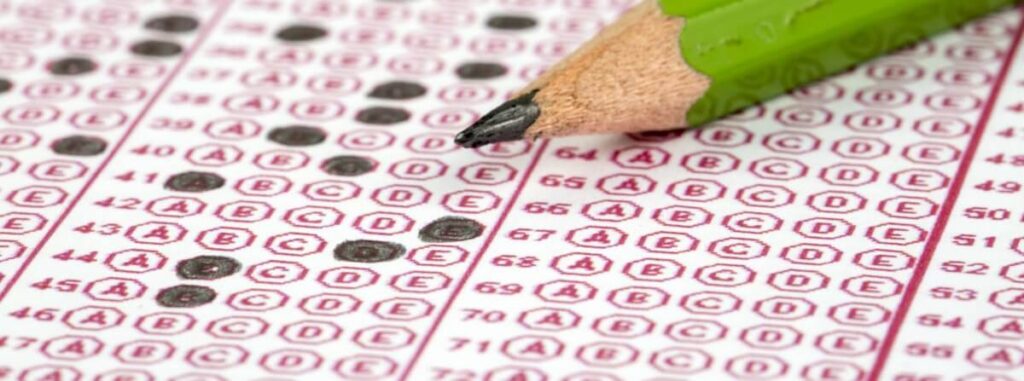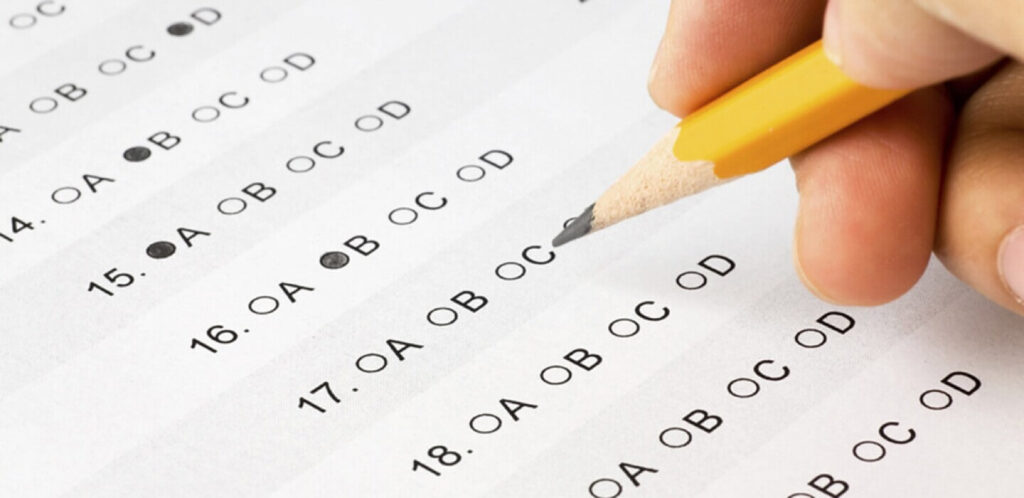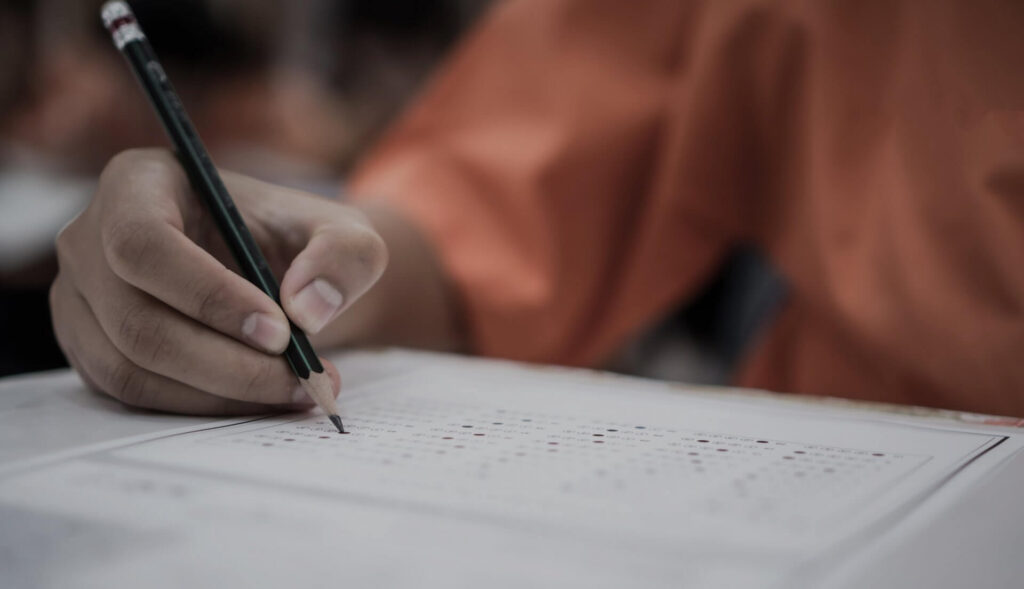
What is Standardized Testing? Definition, Types, Pros & Cons
Standardized testing plays a pivotal role in modern education systems worldwide, shaping everything from curriculum development to student evaluation. However, it’s a topic often met with passionate debate. What is standardized testing? In this article, we delve into the world of standardized testing, offering a comprehensive exploration of its definition, various types, and the pros and cons associated with its use. As education continues to evolve, understanding the significance, nuances, and potential implications of standardized testing is essential for educators, policymakers, students, and parents alike. VTJ will help you uncover the fundamental aspects of standardized testing that shape the educational landscape.
What Is Standardized Testing?

Standardized testing refers to a method of evaluating students’ knowledge, skills, or abilities in a consistent and uniform manner. These tests are designed to measure a student’s performance against a predetermined set of criteria or standards. The questions and scoring methods are standardized, meaning they are the same for all test takers, ensuring fairness and comparability across different individuals or groups.
Standardized tests are commonly used in educational settings, such as schools and universities, as well as in various professional and certification programs. They aim to provide an objective and standardized way of assessing students’ academic progress, aptitude, or proficiency in specific subjects or areas.
Explore More Teaching Tips: 6 Types of Assessment in Education & How to Use Them
What Are Some Types Of Standardized Tests?

There are various types of standardized tests that serve different purposes in assessing students’ abilities and qualifications including:
- Diagnostic tests are used to determine if a student qualifies for special education services. These tests evaluate a range of areas, including academic, physical and fine motor skills, social and behavioral skills, and more. They aim to identify any specific challenges or needs that a student may have. Examples of diagnostic tests include hearing tests to assess auditory abilities and learning disability tests to identify any learning difficulties.
- Achievement tests are designed to measure a student’s current strengths and weaknesses in a specific area, typically focusing on academic subjects. These tests assess the knowledge and skills a student has acquired up to a certain point. Examples of achievement tests include the SAT (Scholastic Assessment Test), the Iowa Assessments, and the tests administered by many states at specific grade levels. These tests provide insights into a student’s academic performance and help identify areas where additional support or improvement may be needed.
Discover Related Guides: Formative and Summative Assessment: What’s the Difference?
How Are Standardized Tests Scored?

Criterion-Referenced Scoring
Criterion-referenced scoring focuses on measuring a student’s performance against a predetermined set of criteria or standards. In this approach, the test is designed to assess whether a student has achieved specific learning objectives or skills. The scores are based on how well the student demonstrates mastery of the content or skills being tested.
For criterion-referenced scoring, a student’s performance is typically reported as a percentage or a scaled score. The percentage indicates the proportion of questions answered correctly, while a scaled score is a standardized representation of the student’s performance, often ranging from a specific minimum to a maximum score. The emphasis in criterion-referenced scoring is on determining whether a student has met the established criteria or benchmarks, regardless of how other test takers perform. This approach is commonly used in assessments that focus on specific learning objectives or proficiency levels.
Norm-Referenced Scoring
Norm-referenced scoring compares a student’s performance to that of a larger group of test takers, known as the norm group. The purpose is to rank students and determine their relative standing compared to their peers. The scores are reported as percentiles, which indicate the percentage of test takers who lower scored.
In norm-referenced scoring, the focus is on how a student’s performance compares to the performance of others who took the same test. This approach allows for the identification of high achievers, average performers, and those who may need additional support. It’s important to note that norm-referenced scoring does not measure mastery of specific content or skills but rather provides a comparative ranking. This scoring method is commonly used in assessments such as college admissions tests, where the goal is to differentiate students based on their performance relative to others.
Continue Learning: What Is An Assessment Tool? 11 BEST Assessment Tools for Teachers
What Is Standardized Testing Used For? Why Standardized Testing Is Important?

Standardized tests serve various purposes in educational settings and beyond. Here are some common uses of standardized testing:
- Assessment of Academic Performance: Standardized tests provide a way to assess students’ knowledge, skills, and abilities in a consistent and objective manner. They help measure academic progress, identify areas of strength and weakness, and inform instructional strategies.
- Accountability and School Evaluation: Standardized tests are often used to evaluate schools, districts, and educational programs. They provide data that can be used to assess the effectiveness of educational initiatives, allocate resources, and hold institutions accountable for student outcomes.
- College Admissions and Placement: Many colleges and universities use standardized tests as part of their admissions process. These tests help evaluate applicants’ readiness for higher education and provide a standardized measure for comparing students from different educational backgrounds.
- Standardized Assessments: Standardized tests are used to assess students’ proficiency and progress at various grade levels. They help monitor educational standards, identify achievement gaps, and inform educational policies and interventions.
Standardized testing is important because it provides a standardized and objective measure of students’ abilities, helps identify areas for improvement, informs educational decision-making, and ensures accountability in the education system. It allows for comparisons across individuals, schools, and regions, and helps maintain consistent standards and quality in education.
See More Strategies: 14 Types of teaching methods for an effective lesson
What Are The Pros Of Standardized Testing?

There are several potential advantages of standardized testing:
- Objectivity: Standardized tests provide an objective measure of students’ abilities and knowledge, reducing potential bias or subjectivity in assessment.
- Comparability: Standardized tests allow for comparisons across students, schools, and regions, providing a common metric to evaluate performance and identify areas for improvement.
- Accountability: Standardized testing holds educational institutions accountable for student outcomes, encouraging them to focus on improving teaching and learning.
- Data-Driven Decision Making: Standardized test results provide valuable data that can inform educational policies, interventions, and resource allocation.
Explore More: 22+ SMART Teacher Goals Examples in 2025
What Are Some Cons Of Standardized Testing?

Despite its benefits, standardized testing also has some potential drawbacks:
- Narrow Focus: Standardized tests often prioritize certain subjects or skills, leading to a narrowed curriculum that may neglect other important areas such as creativity, critical thinking, and problem-solving.
- Teaching to the Test: The emphasis on standardized testing can lead to a “teaching to the test” approach, where educators focus on test preparation rather than fostering a well-rounded education.
- Limited Assessment Scope: Standardized tests may not capture the full range of a student’s abilities, as they typically assess only a subset of skills and knowledge.
- High-Stakes Pressure: The pressure associated with high-stakes standardized tests can create stress and anxiety among students, potentially impacting their performance and well-being.
Related Guides: 13 Types of Students in the Classroom and How to Deal with Them
The goal of education should be to nurture well-rounded individuals who possess not only academic knowledge but also critical thinking skills, creativity, and a love for learning. While standardized testing can be a useful tool, it should not be the sole determinant of a student’s success or the quality of education they receive. By embracing a more holistic approach to assessment, you can better support the diverse needs and talents of our students, fostering a more inclusive and effective educational system.
FAQs
What is the purpose of a standardized test?
The purpose of a standardized test is to assess and measure an individual’s knowledge, skills, abilities, or aptitudes in a consistent and uniform manner, typically using predetermined criteria or standards. These tests are used for various purposes, including educational assessment, college admissions, workforce selection, and research.
Is the SAT a Standardized Test?
The SAT (Scholastic Assessment Test) is a standardized test. It is widely used for college admissions in the United States and assesses a student’s readiness for higher education by evaluating their math, reading, and writing skills.
What is the difference between test and standardized test?
- A “test” is a broad term that refers to any assessment or examination used to evaluate a person’s knowledge, skills, or abilities. It can encompass a wide range of assessments, including quizzes, classroom exams, or any form of evaluation.
- A “standardized test,” on the other hand, is a specific type of test designed with a focus on consistency and objectivity. It is administered and scored in a uniform manner, often using a predetermined set of questions or tasks, and aims to provide an objective measure of a person’s performance.
Continue Learning: How to Teach Writing Skills to Students Effectively in 8 Simple Steps






